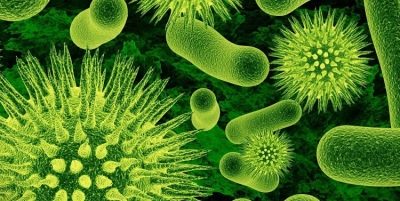Secondary infertility: why it is impossible to get pregnant again and what to do?
Even couples who already have a child may face the problem of conceiving a baby. It would seem that the birth of a baby indicates that partners have no problems with reproductive health. However, this is not the case. This article will tell about what secondary infertility is, why it is impossible to get pregnant again, and what to do with it.
What it is?
There are a lot of couples who fail to conceive their baby brother or sister. Someone already has two children, but it is impossible to conceive the third. The situation may be very different. If, despite the presence of the first baby, the couple has difficulty conceiving the next for a long period of time, then this situation can be regarded by doctors as secondary infertility.
The problem with the conception of the second and subsequent babies is, unfortunately, not so rare. It is considered that about 10% of couples who already have their first baby and dream of the second may face this problem.
Many couples who go to the family planning center believe that the problem of secondary infertility is associated only with a woman. It should be noted that this is not the case. Reproductive health problems may be with both partners.
In order to determine exactly what caused the difficulties of conceiving a baby, you should carefully examine each of the partners.
Risk factors for the development of pathology in women
Problems with the difficulties of conceiving a baby can be “hidden” in a woman’s state of health. The development of secondary infertility contributes to quite a few different reasons, which lead to the fact that the long-awaited fertilization does not occur.
Age
Doctors believe that the older a woman is, the less likely she is to conceive babies. This feature is due to nature. Thus, by the age of 35-38, a woman’s physiologically reduced number of effective ovulatory menstrual cycles, during which mature eggs suitable for conception get into the lumen of the uterine tube.
By the age of 40, almost every third menstrual cycle is believed to be anovulatory. That is why doctors say that female fertility is gradually decreasing by the age of 35-40 years. After 45 years, according to statistics, the probability of conceiving a child can be no more than 5%.
Statistical data - "dry" numbers. Of course, it should be understood that each situation is individual. In their work, gynecologists encounter situations when a mother of 45 and older gives birth to a second or third child. Such cases may indeed be, but they are not so often.
Diseases of the reproductive organs
Gynecologists note that even a healthy woman who has given birth to her first child may face certain gynecological pathologies. So, one of the diseases that prevent the birth of a little brother or sister for the first baby is endometriosis. This insidious pathology, unfortunately, has become increasingly common in gynecological practice. Also gynecologists note another rather unpleasant fact - women of young reproductive age have become increasingly ill with endometriosis.
Endometriosis can affect not only the genitals, but also spread to the abdominal cavity. This pathology contributes to the disruption of the normal functioning of the ovaries, and in some cases may reduce the patency of the fallopian tubes. In such a situation, fertilization of the eggs will become impossible.
Unfortunately, endometriosis is increasingly registered in women aged 35-40 years. It is at this age that a woman, according to statistics, begins to think more about the second pregnancy. The presence of endometriosis can significantly reduce the chances of possible conception, as well as lead to persistent infertility.
If natural fertilization becomes impossible due to the progression of the disease, then modern reproductive technologies come to the rescue.
Another pathology that can lead to difficulties with the onset of a long-awaited pregnancy is uterine fibroids. The presence of myomatous nodes is a mechanical obstacle to the implantation of a fertilized egg. Also, fibroids can create a specific barrier to sperm cells that enter the uterus through the genital tract. In this case, the male sex cell can not merge with the female, it also leads to the absence of a long-awaited pregnancy.
Myoma is a rather insidious disease. It may appear suddenly, almost against the background of complete well-being. The danger of fibroids lies in the fact that a woman for a long time can not notice the appearance of any adverse symptoms. Lack of pregnancy can be attributed to some psychological reasons or prolonged stress. In women who already have babies, fibroids can appear even after childbirth.
There are a lot of diseases that can cause difficulties with the conception of the second and subsequent babies. Thus, the development of secondary infertility can contribute to the pathology in which adhesions grow in the small pelvis and abdominal cavity. The presence of scars or adhesions is a mechanical obstacle to the meeting of the egg with the spermatozoon. Pronounced adhesions in the pelvis can be a risk factor for the development of secondary infertility.
Effects of operations
Problems with the conception of a baby can also occur in mothers who have had a cesarean section during their first pregnancy. The presence of gynecological surgery in history is often a sign of the development of possible problems later in the onset of pregnancy. It should be noted that this situation still occurs in gynecological practice relatively rarely.
It is more unfavorable if, after the surgical treatment of the pelvic organs, the woman had adhesive disease. In this case, adhesions can be localized in the region of the ovaries, fallopian tubes, and even in the main reproductive organ - in the uterus. The more adhesions, the lower the probability of the potential conception of the baby.
Breast-feeding
While the mother is breastfeeding the first baby, the chances of getting pregnant second are rather low. Again, it is worth emphasizing that this happens in most cases. Every rule has exceptions. Reviews of some women indicate that they again became pregnant while feeding the first baby. However, this is the exception rather than the rule.
During breastfeeding, certain hormones are produced in the female body. Normally, their balance is such that the conception of the next baby during lactation decreases significantly. This is intended by nature so that a woman can first feed one baby, and then think about re-pregnancy. If, for some reason, a woman has hormones that “get off”, she can become pregnant during lactation.
Causes by men
Problems with the conception of the second or subsequent babies can also be caused by health problems of the man. As a rule, representatives of the stronger sex do not go to doctors for a long time, trying not to notice the problem. However, difficulties in conceiving a baby can be a strong motivating reason for facilitating visits to a medical clinic.
Age
Doctors note that the quality of sperm in men deteriorates with age. This contributes to a number of different reasons. Already by the age of 35-40 the number of viable and active spermatozoa in the ejaculate is reduced. Of course, such changes are not always the absolute cause of infertility. However, they can reduce the possibility of natural conception at times.
Wrong way of life
The quality of male sperm affects a huge number of various factors. It is believed that the activity and motility of sperm decreases with the background of severe stress, excessive physical exertion, as well as in the conduct of an unhealthy lifestyle. The debilitating stress at work and the lack of optimal physical exertion are serious risk factors for the development of male infertility.
Violation of the functioning of the male genital organs can even lead to a lack of proper sleep. If a man has difficulty falling asleep for a long time and goes to bed every day after 2-3 in the morning or even in the morning, then his body experiences a serious "overload." For the normal functioning of the body, doctors recommend sleeping at least 8 hours.
Harmful habits are also not conducive to maintaining men's health. Scientists believe that male smokers have semen rates much worse than men who do not smoke. Alcohol also affects spermatogenesis (the formation of male germ cells).
Even taking 30 ml of ethyl alcohol can have a damaging effect on the male sex cells and cause erection problems.
Infections
Diseases that can lead to a decrease in spermatogenesis may be infectious in nature. Quite often, the development of various functional disorders in men contribute to sexually transmitted infections. The danger of these pathologies lies in the fact that for a long time they can remain “dumb”, that is, without the manifestation of adverse symptoms.
Infectious diseases cause various microbes that can "settle" in various internal organs, including those responsible for reproduction, and cause a chronic inflammatory process in them. In such a situation, the full body work is impossible. In order to cope with the resulting functional impairment, a mandatory treatment is required. In this case, therapy is prescribed, as a rule, to both partners. In one case, it is drug therapy, and in the other - prophylactic.
What to do?
If you have problems with the conception of the second or subsequent babies, the couple should consult a doctor. Many partners make the mistake of believing that since they managed to have a first child, it’s easy to conceive a second one. In practice, unfortunately, this is not always the case. The problem of secondary infertility can be so serious that the couple will have to resort to the services of a surrogate mother or do IVF.
Doctors say that the diagnosis of secondary infertility, as a rule, is often untimely. This is largely due to the fact that partners are rather late to turn to specialists, considering that they have no problem, and difficulties with conception are just a temporary phenomenon. Often they resort to various means of traditional medicine, which, unfortunately, does not always lead to some positive result. Multiple unsuccessful attempts to conceive a baby still lead to the fact that the couple eventually turns to the center of family planning.
Therapy, which is selected in medical centers, is individual. For the treatment of pathologies, a variety of methods can be applied - from the usual prescription of drugs to several courses of physiotherapy. Therapy of secondary infertility can be quite long. Treatment of certain pathologies is carried out even for several months in order to achieve a positive therapeutic result. A couple who dreams of having a second child should be patient and maintain a positive attitude.
Prevention
Many women, having given birth to the first baby, really want to feel the same happiness again. In order to maintain health, you need to remember about prevention. Many diseases are easier to prevent than to cure. Maintaining a healthy lifestyle, a balanced diet, regular walks in the fresh air and stress reduction are important conditions for maintaining reproductive health for many years.
Doctors advise that after the birth of the first child, you should not rush to the birth of the second. It is better to plan the subsequent pregnancy after 18 months from the moment of the first birth. Scientists believe that this is the minimum amount of time it takes for a woman who has just given birth to a recovery.
During pregnancy, and then lactation, the female body works intensively. All his reserves are directed at this time to ensure the needs of the baby.
During pregnancy, and then lactation, a woman loses certain trace elements. In order for the body to replenish the wasted reserves, it takes quite a lot of time. Mom, who has just given birth to the first baby, should take care not only of the health of her newborn baby, but also remember her well-being. Proper nutrition, rich in protein foods and vitamins, is very important after lactation. This will help the body recover faster and “replenish” its reserves for future pregnancies.
In the next video, see a webinar on the topic of secondary infertility.


























